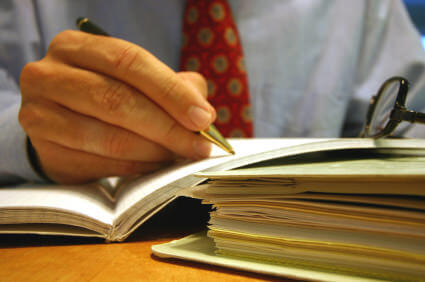APA Writing Style: Staying True to Yourself
You’ve started putting together a draft to present your research paper to your review board. You have outlined several points already, including your hypothesis and other introductory pieces. However, you’re struggling to figure out a specific writing style to use for your dissertation or thesis. The American Psychological Association (APA) suggests a preferred technical writing style, but you could choose to follow a different style guide, or be required to use something other than the APA writing style guide. While the APA writing style guide is used by most universities,
some choose not to. According to APA, “[t]he prime objective of scientific reporting is clear communication. You can achieve this by presenting ideas in an orderly manner and by expressing yourself smoothly and precisely” (APA, 2010, p. 65). As long as you follow these guidelines, then you can choose whatever writing style suits you personally.Things to Remember
One important thing to remember as you are writing your thesis or dissertation is continuity. While you are writing, you should always consider your main subject to keep from going on an off-topic tangent. As you are writing a paragraph, ask yourself how the content of that paragraph relates to the current chapter or subheading that you are writing about. Another important thing to remember as you are writing is smoothness and flow. Proper punctuation can help you establish smoothness and flow in your writing because correctly placed commas and colons let readers see your train of thought in communicating your idea. When in doubt refer to the APA writing style guide to help you with obscure punctuation rules. Another very important thing to remember as you are writing your thesis or dissertation is to find peers to help you in the writing process. Pair with a colleague, and read each other’s work so that you have another perspective on your writing. Finally, set a tone early on in your work, and maintain that tone throughout your paper. Make sure your writing style is similar to your personality so that writing will come easily to you, and you won’t have to worry about sounding a certain way and writing in a style that isn’t yours.
Things to Avoid
You should try to avoid several things while you are writing. For example, do not try to impress other professionals because they will not be the people studying your work. Do not try to use too many large words and too much technical jargon because wordiness can detract from the main idea of a sentence or paragraph. Avoid being redundant or continuously repeating yourself, even if you use different words in each repetition. Avoid anthropomorphism or “attribut[ing] human characteristics to animals or to inanimate sources” (APA, 2010, p. 69). For example, do not use phrases such as “this study attempted,” or “the research presented.” Avoid employing several consecutive long or short sentences; instead mix up sentence length to keep readers alert and attune to your message. The APA writing style guide strongly encourages writers to avoid using bias in their writing by considering your argument from all perspectives and viewpoints. Even if the bias is popular opinion, bias can often offend readers who believe differently.


0 comments